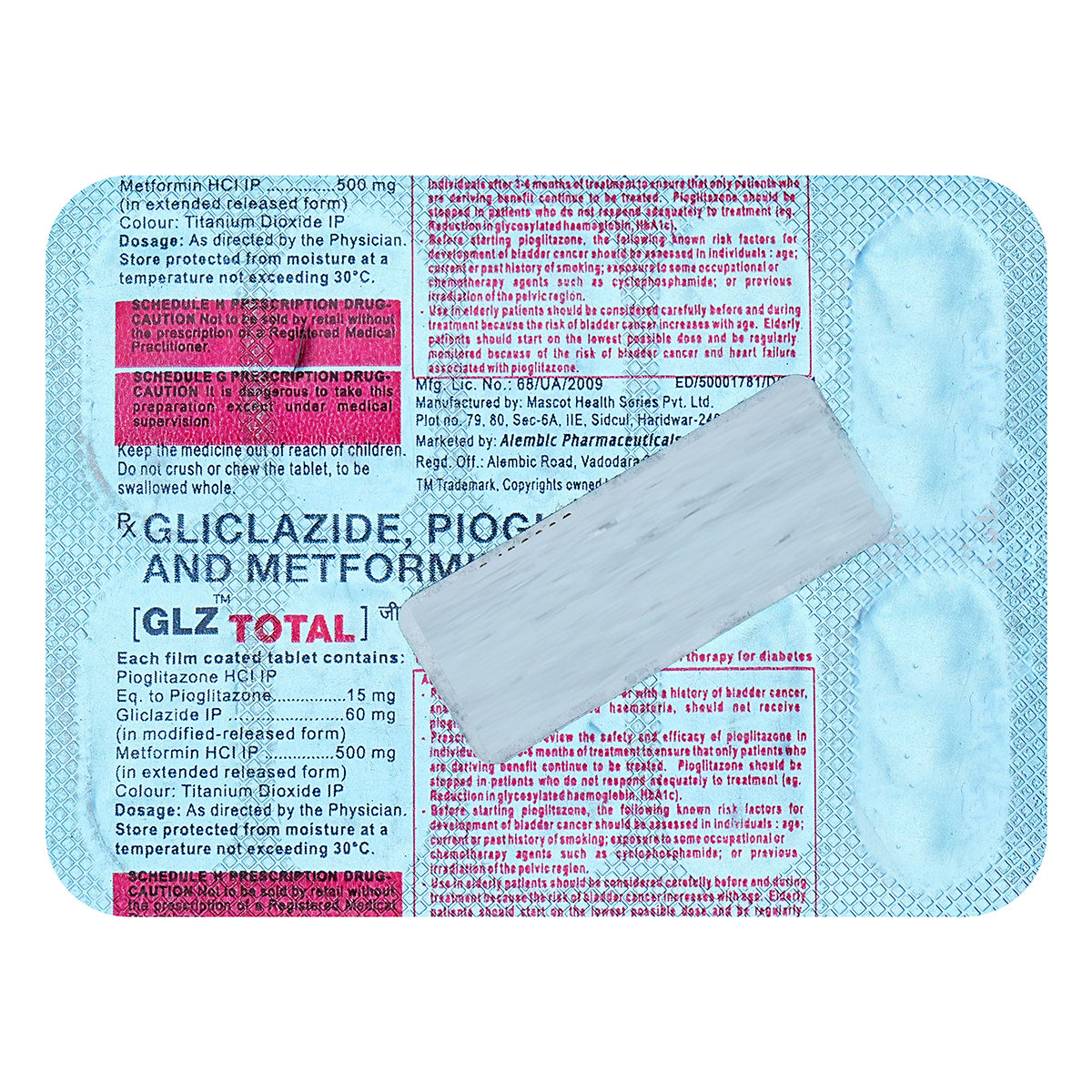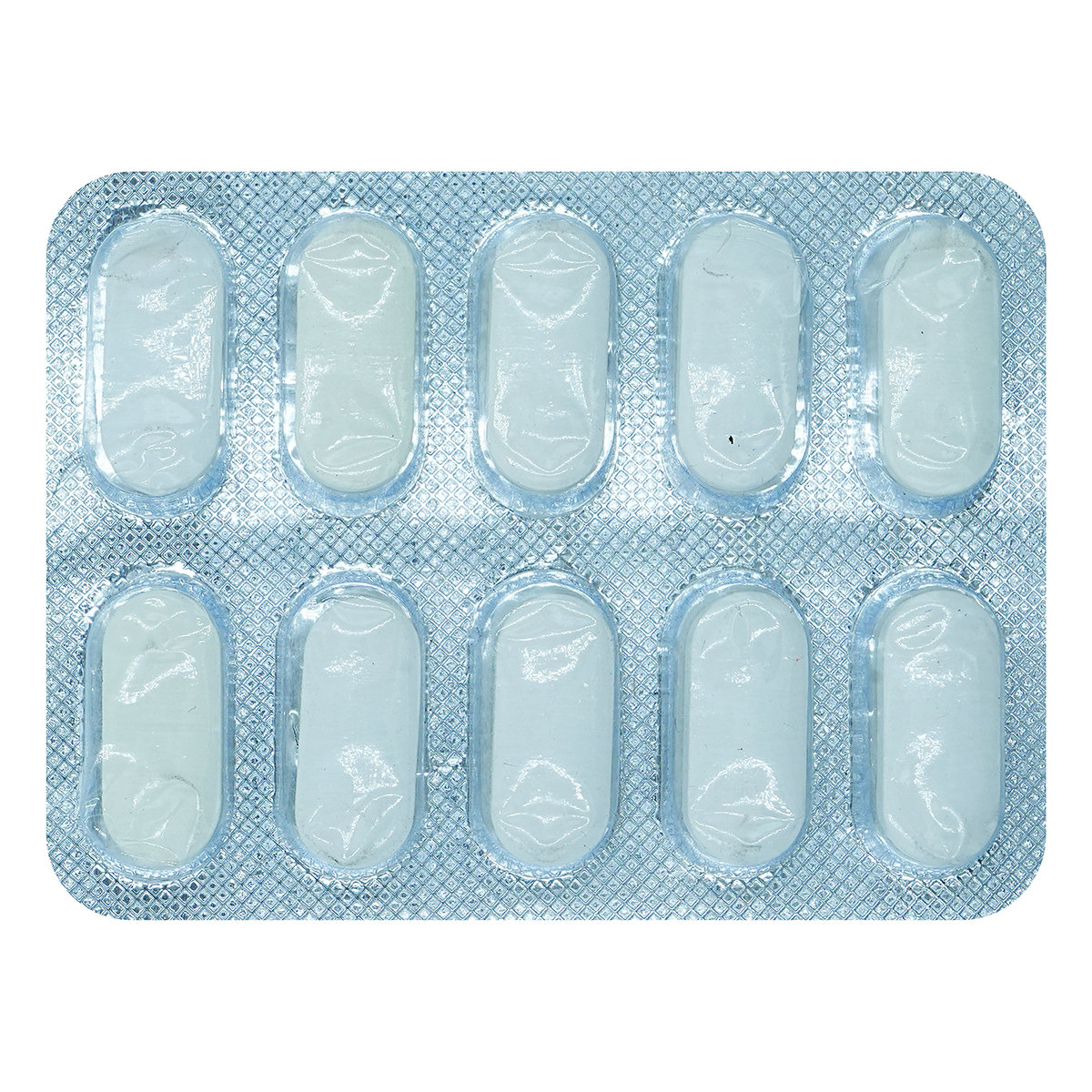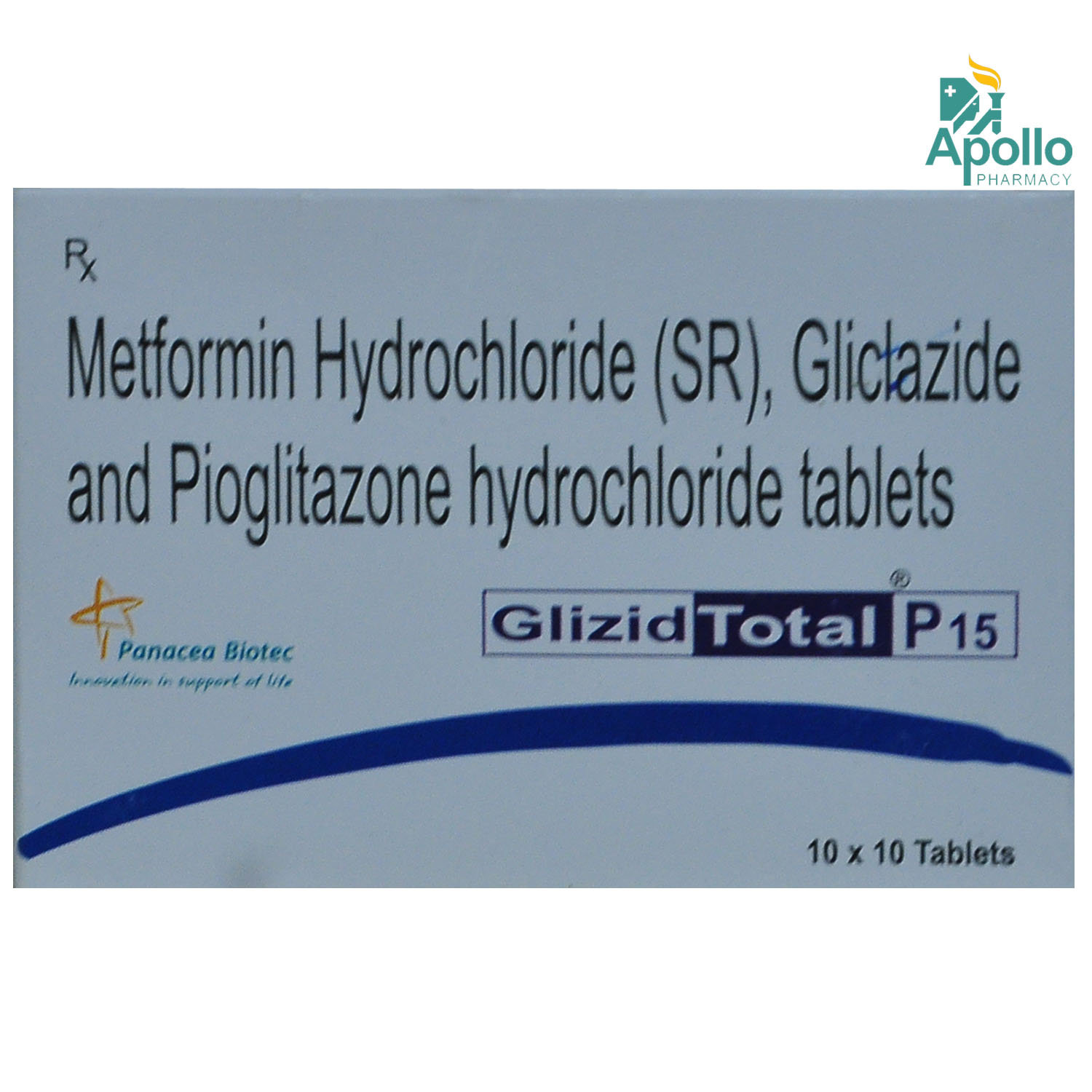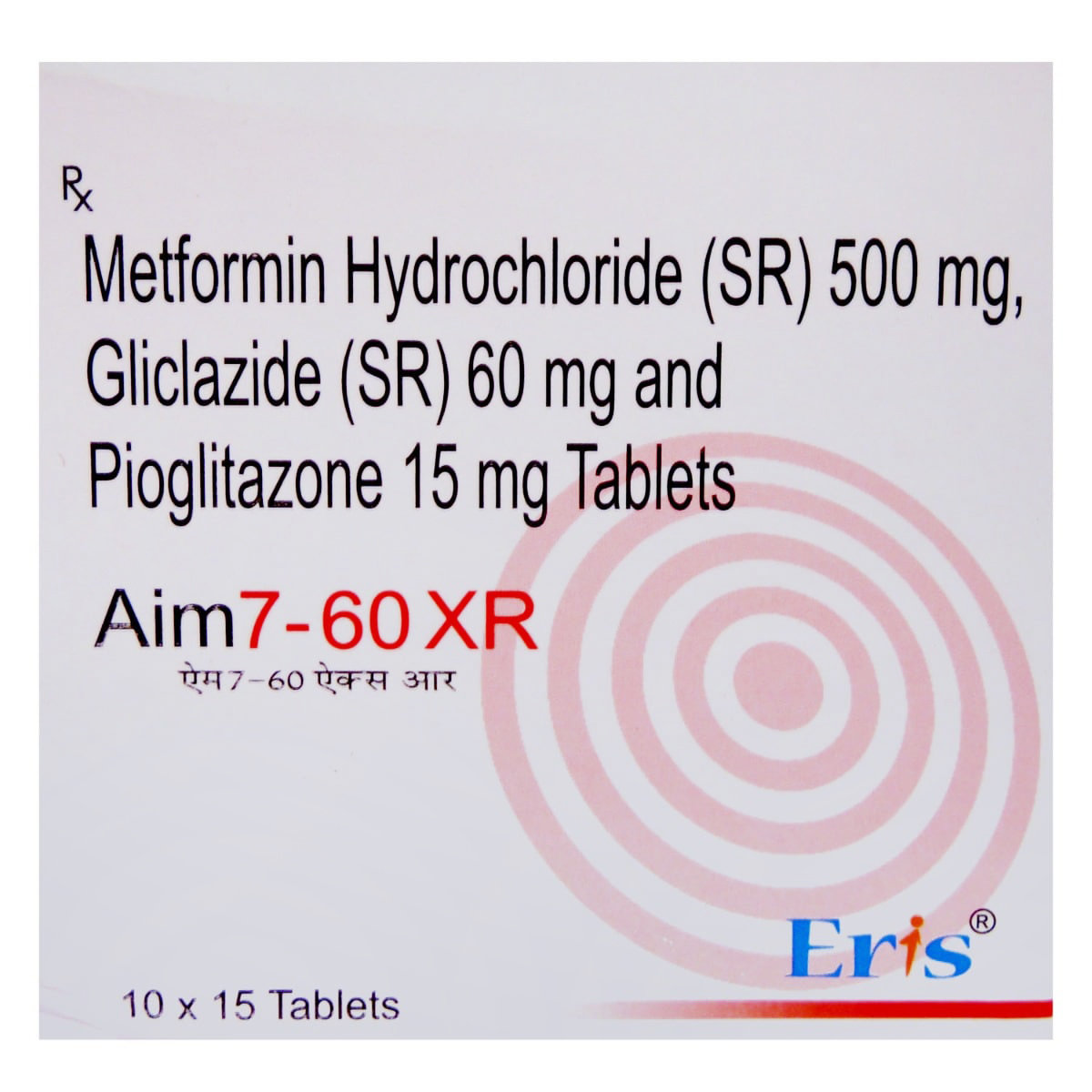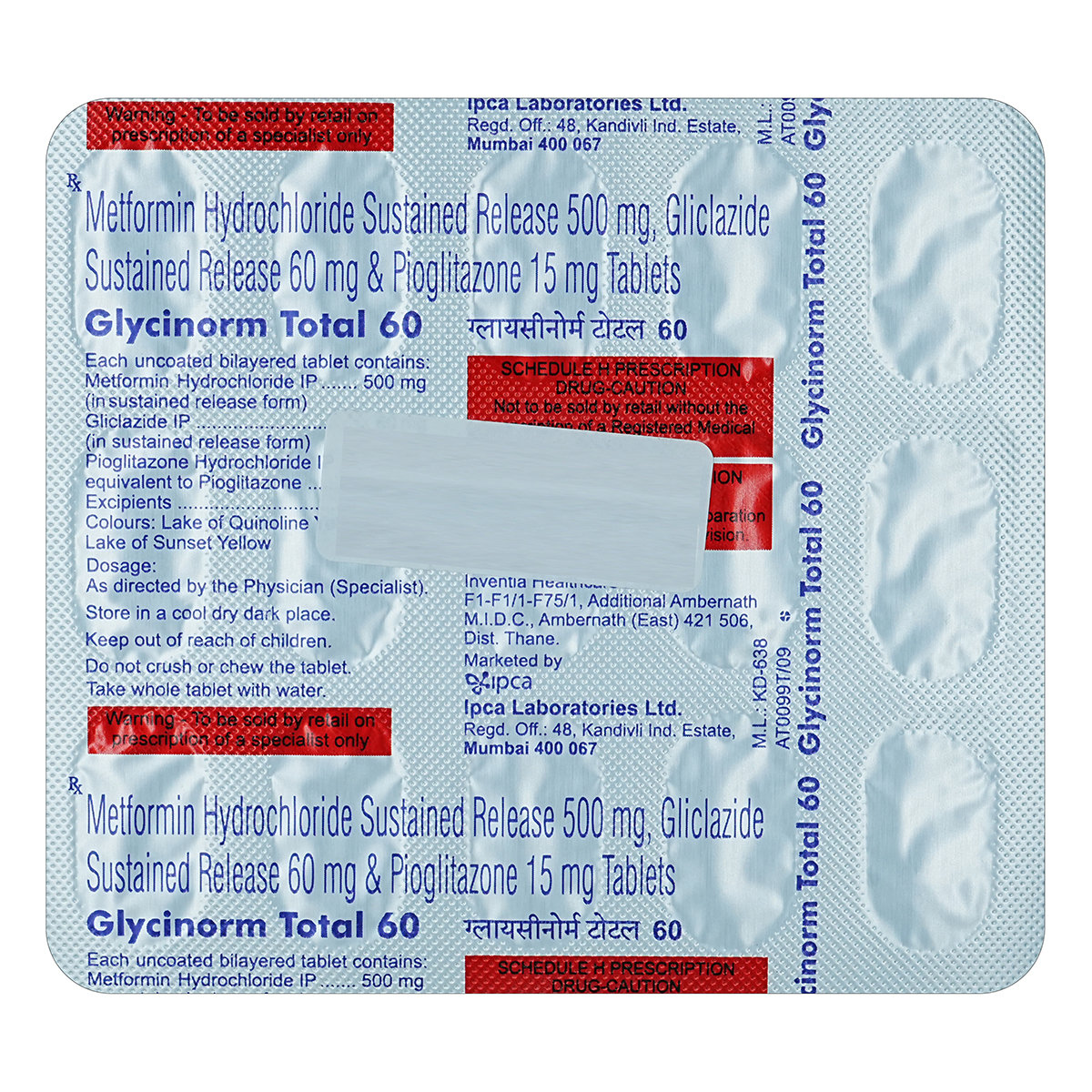GLZ Total Tablet 10's
MRP ₹122
(Inclusive of all Taxes)
₹18.3 Cashback (15%)
Provide Delivery Location
Online payment accepted
 Prescription drug
Prescription drugWhats That
Composition :
Manufacturer/Marketer :
Consume Type :
Expires on or after :
Return Policy :
About GLZ Total Tablet
GLZ Total Tablet is a medicine that is used to treat Type 2 diabetes. Type 2 diabetes is a chronic or lifelong condition affecting how your body processes glucose. People with type 2 diabetes either do not produce enough insulin, or if at all the insulin is produced, it is unable to perform its function in the body (insulin resistance). Due to this, the blood glucose level increases and symptoms such as frequent urination, increased thirst and increased hunger start. It can lead to serious complications like skin infection, eye problems (retinopathy), nerve damage (neuropathy), diabetic foot (foot ulcer), kidney disease (nephropathy), high blood pressure, and even stroke.
GLZ Total Tablet contains Gliclazide, metformin and pioglitazone. Gliclazide is a 'sulfonylurea' that acts by increasing the insulin released by the pancreas. On the other hand, Metformin, which is a 'biguanide', acts by lowering the glucose production in the liver, delaying glucose absorption from the intestines and increasing the body's response to insulin. Pioglitazone works by decreasing the amount of glucose released by the liver and improving the sensitivity of tissues of muscles and fats towards insulin effects.
GLZ Total Tablet is available in oral tablet dosage form. You should take this medicine as prescribed by your doctor. You may experience side effects such as nausea, taste change, weight gain, vomiting, diarrhoea, stomach ache, and a respiratory infection. Some patients may experience a decline in blood sugar levels lower than normal (hypoglycemia), resulting in sweating, dizziness, headache, confusion, feeling hungry, temporary changes in vision, uneasiness, irritability, and weakness. In such cases, seek medical attention immediately. GLZ Total Tablet should be taken with food to avoid an upset stomach. GLZ Total Tablet should be taken at the same time of the day each time for the best results. For better advice, your doctor will decide what dose should be taken, which can change quickly depending on your condition.
You should not take GLZ Total Tablet if you have diabetic ketoacidosis (excess acids in your blood). Do not take GLZ Total Tablet if you are allergic to any of its contents. Before taking GLZ Total Tablet , inform your doctor if you are taking other medicines, including prescription or non-prescription medicines, nutritional supplements, or herbal products. GLZ Total Tablet should not be stopped even if you feel better, without consulting your doctor as your sugar level keeps changing. If you stop taking GLZ Total Tablet abruptly, it may increase your sugar levels which could further increase the risk of eyesight loss (retinopathy), kidney (nephropathy) and nerve damage (neuropathy). GLZ Total Tablet should not be taken if you have type 1 diabetes mellitus or severe kidney or liver disease. Please inform your doctor if you have any heart disease, is or are planning to get pregnant or breastfeed. GLZ Total Tablet may cause ‘lactic acidosis’ (accumulation of lactic acid in the blood), which requires immediate medical attention. Do not consume alcohol (risk of lactic acidosis) or fast for prolonged periods (risk of hypoglycemia).
Uses of GLZ Total Tablet
Directions for Use
Key Benefits
GLZ Total Tablet contains Gliclazide, Metformin, and Pioglitazone. Gliclazide increases the production of insulin by acting on the pancreas. Metformin acts by decreasing liver glucose production and intestinal glucose uptake. Pioglitazone works by decreasing the amount of glucose released by the liver and improving the sensitivity of tissues of muscles and fats towards insulin effects. Together GLZ Total Tablet decreases the elevated blood sugar level after the meal along with the recommended diet and exercise. GLZ Total Tablet also helps to prevent serious complications of diabetes such as kidney damage (diabetic nephropathy), blindness (diabetic retinopathy), loss of sensation in your hands and feet (diabetic neuropathy) or even loss of the foot. GLZ Total Tablet also helps to reduce your chance of having a heart attack or stroke. Being a combination of two drugs, it reduces the need to take multiple pills, making it easier to remember to take the drugs.
Storage
- Inform Your Doctor: Notify your doctor immediately about your diarrhoea symptoms. This allows them to adjust your medication or provide guidance on managing side effects.
- Stay Hydrated: Drink plenty of fluids to replace lost water and electrolytes. Choose water, clear broth, and electrolyte-rich drinks. Avoid carbonated or caffeinated beverages to effectively rehydrate your body.
- Follow a Bland Diet: Eat easy-to-digest foods to help firm up your stool and settle your stomach. Try incorporating bananas, rice, applesauce, toast, plain crackers, and boiled vegetables into your diet.
- Avoid Trigger Foods: Steer clear of foods that can worsen diarrhoea, such as spicy, fatty, or greasy foods, high-fibre foods, and dairy products (especially if you're lactose intolerant).
- Practice Good Hygiene: Maintain good hygiene to prevent the spread of infection. To stay healthy, wash your hands frequently, clean and disinfect surfaces regularly, and avoid exchanging personal belongings with others.
- Take Anti-Diarrheal Medications: If your doctor advises, anti-diarrheal medications such as loperamide might help manage diarrhoea symptoms. Always follow your doctor's directions.
- Keep track of your diarrhoea symptoms. If they don't get better or worse or are accompanied by severe stomach pain, blood, or dehydration signs (like extreme thirst or dark urine), seek medical help.
- Inform your doctor about the nausea and discuss possible alternatives to the medication or adjustments to the dosage.
- Divide your daily food intake into smaller, more frequent meals to reduce nausea.
- Opt for bland, easily digestible foods like crackers, toast, plain rice, bananas, and applesauce.
- Avoid certain foods that can trigger nausea, such as fatty, greasy, spicy, and smelly foods.
- Drink plenty of fluids, such as water, clear broth, or electrolyte-rich beverages like coconut water or sports drinks.
- Use ginger (tea, ale, or candies) to help relieve nausea.
- Get adequate rest and also avoid strenuous activities that can worsen nausea.
- Talk to your doctor about taking anti-nausea medication if your nausea is severe.
- Record when your nausea occurs, what triggers it, and what provides relief to help you identify patterns and manage your symptoms more effectively.
- Preventing Vomiting (Before it Happens)
- Take medication exactly as prescribed by your doctor. This can help minimize side effects, including vomiting.
- Having a small meal before taking your medication can help reduce nausea and vomiting.
- Talk to your doctor about taking anti-nausea medication along with your prescribed medication.
- Managing Vomiting (If it Happens)
- Try taking ginger in the form of tea, ale, or candy to help alleviate nausea and vomiting.
- What to Do if Vomiting Persists
- Consult your doctor if vomiting continues or worsens, consult the doctor for guidance on adjusting your medication or additional treatment.
- Tell your doctor about your GAS symptoms. They may change your medication regimen or prescribe additional drugs to help you manage them.
- To manage GAS symptoms, eat a balanced diet of fibre, vegetables, and fruits.
- Drink enough water throughout the day to avoid constipation and treat GAS symptoms.
- Regular exercise like yoga and walking may help stimulate digestion and alleviate GAS symptoms.
- Take probiotics only if your doctor advises, as they may help alleviate GAS symptoms by promoting gut health.
- Take medication for GAS symptoms only if your doctor advises, as certain medications can interact with your existing prescriptions or worsen symptoms.
- If symptoms persist, worsen, or are accompanied by severe abdominal pain, vomiting, or bleeding, seek immediate medical attention.
- If you experience low blood sugar levels, inform your doctor. They will assess the severity and make recommendations for the next actions.
- Your doctor will assess your symptoms, blood sugar levels, and overall health before recommending the best course of action, which may include treatment, lifestyle modifications, or prescription adjustments.
- Follow your doctor's instructions carefully to manage the episode and adjust your treatment plan.
- Make medication adjustments as recommended by your doctor to prevent future episodes.
- Implement diet and lifestyle modifications as your doctor advises to manage low blood sugar levels.
- Monitor your blood sugar levels closely for patterns and changes.
- Track your progress by recording your blood sugar levels, food intake, and physical activity.
- Seek further guidance from your doctor if symptoms persist or worsen so that your treatment plan can be revised.
- Reduce salt intake to minimize fluid buildup.
- Use compression stockings, sleeves, or gloves.
- Gently massage the affected area towards the heart.
- Protect the swollen area from injury and keep it clean.
- Use lotion or cream to keep the skin moisturized.
Drug Warnings
GLZ Total Tablet may cause ‘lactic acidosis’ (buildup of lactic acid in the blood), characterized by abdominal pain, muscle cramps, vomiting, severe fatigue, and difficulty breathing. It is a life-threatening condition that requires immediate medical attention. Inform your doctor if you have any severe liver or kidney problems, as their normal functioning is required to eliminate excess lactic acid from the body. Do not consume excess alcohol, as it increases the risk of lactic acidosis. It should be used with caution in patients with heart disease as it increases the risk of heart failure.
Drug-Drug Interactions
Drug-Drug Interactions
Login/Sign Up
Co-administration of GLZ Total Tablet and Iodamide can increase the risk of lactic acidosis (when the body produces too much lactic acid).
How to manage the interaction:
Taking GLZ Total Tablet with Iodamide is generally avoided as it can result in an interaction, please consult your doctor before taking it.
Co-administration of GLZ Total Tablet and Iobenzamic acid can increase the risk of lactic acidosis (when the body produces too much lactic acid).
How to manage the interaction:
Taking GLZ Total Tablet with Iobenzamic acid is generally avoided as it can result in an interaction, please consult your doctor before taking it.
Co-administration of GLZ Total Tablet with Metrizamide together can cause the risk of lactic acidosis (when the body produces too much lactic acid ).
How to manage the interaction:
Taking GLZ Total Tablet with Metrizamide is generally avoided as it can possibly result in an interaction, it can be taken if a doctor has advised it. However, if you experience headaches, muscle cramps or pain, contact a doctor immediately. Do not discontinue any medications without consulting a doctor.
Co-administration of Iopydol with GLZ Total Tablet can increase the risk of side effects.
How to manage the interaction:
Taking GLZ Total Tablet with Iopydol is not recommended, please consult your doctor before taking it.
Co-administration of GLZ Total Tablet and Iocarmic acid can increase the risk of lactic acidosis (when the body produces too much lactic acid).
How to manage the interaction:
Taking GLZ Total Tablet with Iocarmic acid is generally avoided as it can result in an interaction. please consult your doctor before taking it.
Co-administration of Iodixanol with GLZ Total Tablet can increase the risk of side effects.
How to manage the interaction:
Taking GLZ Total Tablet with Iodixanol is not recommended, please consult a doctor before taking it. Do not discontinue the medications without consulting a doctor.
Co-administration of GLZ Total Tablet and Iobitridol can increase the risk of lactic acidosis (when the body produces too much lactic acid).
How to manage the interaction:
Taking GLZ Total Tablet with Iobitridol is generally avoided as it can result in an interaction. Please consult your doctor before taking it.
Co-administration of Ioversol with GLZ Total Tablet can increase the risk of side effects.
How to manage the interaction:
Taking GLZ Total Tablet with Ioversol is not recommended, please consult your doctor before taking it.
Co-administration of Iopamidol with GLZ Total Tablet can increase the risk of side effects.
How to manage the interaction:
Taking GLZ Total Tablet with Iopamidol is not recommended, please consult a doctor before taking it. Do not discontinue the medications without consulting a doctor.
Co-administration of Iotroxic acid with GLZ Total Tablet can increase the risk of side effects.
How to manage the interaction:
Taking GLZ Total Tablet with Iotroxic acid is not recommended, please consult your doctor before taking it.
Drug-Food Interactions
Drug-Food Interactions
Login/Sign Up
Diet & Lifestyle Advise
-
Eat at regular intervals. Do not take the long gap between a meal or snack.
-
Monitor your blood sugar level regularly, especially when there are a lot of fluctuations.
-
Invest in at least 150 minutes of moderate-intensity physical activity and 15 minutes of high-intensity exercise weekly.
-
Lose weight gradually to achieve a healthy body mass index (18.5 to 24.9).
-
Replace refined carbohydrates-containing foods with whole grain foods and increase intake of fruits and veggies and other fibre-enriched foods.
-
Reduce saturated fat (or hidden fats) intake in food like chips, crisps, pastries, biscuits, and samosas. Choose omega-3 fatty acid-containing oils for daily cooking. For frying, you may use palm oil, mustard oil, groundnut oil, rice bran oil, and safflower oil.
-
Do not take stress as it may elevate your blood sugar level. You may adopt stress management techniques like mindfulness, yoga, or meditation to control stress-related blood sugar changes.
-
Opt for low-fat dairy products (low-fat yoghurt, fat-free milk, cheese, etc.).
-
Keep your blood pressure as normal (120/80) as possible. As it reduces the risk of cardiovascular diseases in diabetes patients.
Side Effects of GLZ Total Tablet
-
Hypoglycemia
-
Taste change
-
Nausea (feeling sick)
-
Vomiting (falling sick)
-
Diarrhoea
-
Stomach ache
-
Respiratory infection
-
Weight gain
-
bone fracture
-
Numbness
-
Vision problems
Habit Forming
Therapeutic Class
All Substitutes & Brand Comparisons
RX
Out of StockGLIZID TOTAL TABLET
Panacea Biotec Ltd
₹83.1
(₹7.48 per unit)
31% CHEAPERRX
Piopar-GZ Total Tablet 15's
Mitoch Pharma Pvt Ltd
₹139.5
(₹8.37 per unit)
23% CHEAPERRX
Diaclide-MP Tablet 10's
Stature Life Sciences Pvt Ltd
₹105
(₹9.45 per unit)
13% CHEAPER
Drug-Diseases Interactions
Drug-Diseases Interactions
Login/Sign Up
FAQs
Drug-Drug Interactions Checker List
- RIFAMPICIN
- MICONAZOLE
- FLUCONAZOLE
- SALBUTAMOL
- RITODRINE
- DESMOPRESSIN
- DANAZOL
- GEMFIBROZIL
- CHLORPROMAZINE
- PHENYLBUTAZONE
Special Advise
- GLZ Total Tablet shows optimum effects when you follow healthy lifestyle changes like weight loss, regular exercise, healthy diet, etc.
- Keep taking the drug even if your blood sugar levels are controlled. If you miss a dose, do not take a larger dose; consult your doctor for advice.
- Take short, frequent meals, and avoid prolonged fasting when taking this drug. Beware of hypoglycemia symptoms, including sweating, dizziness, palpitations, shivering, intense thirst, dry mouth, dry skin, frequent urination, etc.
- Whenever you experience the above-mentioned symptoms, immediately consume 5-6 candies or 3 glucose biscuits or 3 teaspoons of honey/sugar and get in touch with your physician. Make sure to carry these with you at all times, especially for long travels.
- Avoid drinking alcohol while on this drug as it increases the risk of hypoglycemia (a decrease in blood sugar which might be fatal in some cases) and lactic acidosis (when the lactic acid increases in the body, which impacts the functioning of various organs in the body).
- Try to quit smoking and reduce your intake of carbohydrate-rich food like potatoes, rice, mangoes, bread, sugar, etc.
Disease/Condition Glossary
Type 2 diabetes mellitus: Type 2 diabetes mellitus is a chronic condition characterised by elevated blood glucose levels in the body. Insulin is in charge of the cell's utilisation of glucose. Type 2 diabetes occurs when the body's cells do not respond to insulin or, in later stages, the body does not produce enough insulin. Excessive thirst, hunger, fatigue, increased appetite, and dry mouth are all symptoms. If not properly treated, this condition may worsen over time and cause toxic effects.

Have a query?
Alcohol
Safe if prescribed
Alcohol may increase the risk of side effects and worsen the condition.
Pregnancy
Consult your doctor
If you are pregnant, consult your doctor before taking GLZ Total Tablet .Your doctor may prescribe this medicine if the benefits outweigh the risks.
Breast Feeding
Consult your doctor
If you are breastfeeding, consult your doctor before taking GLZ Total Tablet .Your doctor may prescribe this medicine if the benefits outweigh the risks.
Driving
Safe if prescribed
GLZ Total Tablet may cause vision problems. So, do not drive or operate heavy machinery if you have any problems with your vision while using GLZ Total Tablet .
Liver
Consult your doctor
GLZ Total Tablet should be taken with caution, especially if you have a history of liver diseases/conditions. Your doctor may adjust the dose if required based on your condition.
Kidney
Consult your doctor
GLZ Total Tablet should be taken with caution in patients with kidney diseases. Your doctor may adjust the dose if required based on your condition.
Children
Safe if prescribed
GLZ Total Tablet is not recommended for use in children below 18 years.
Recommended for a 30-day course: 3 Strips

